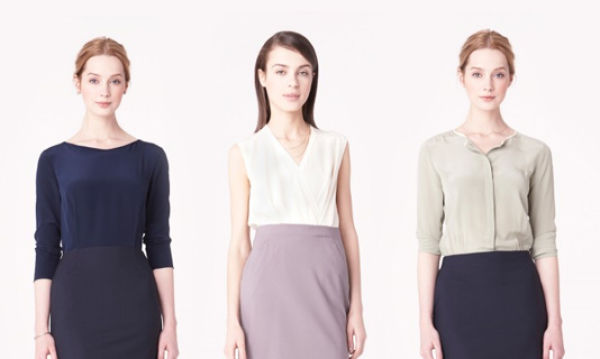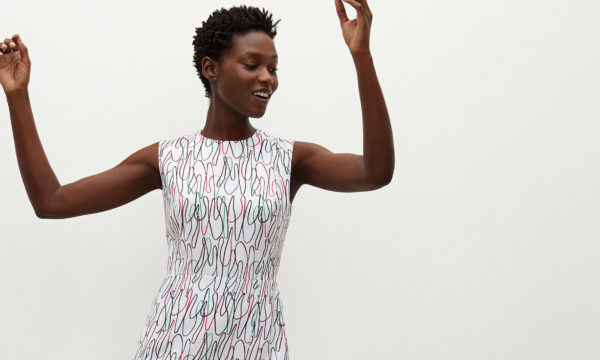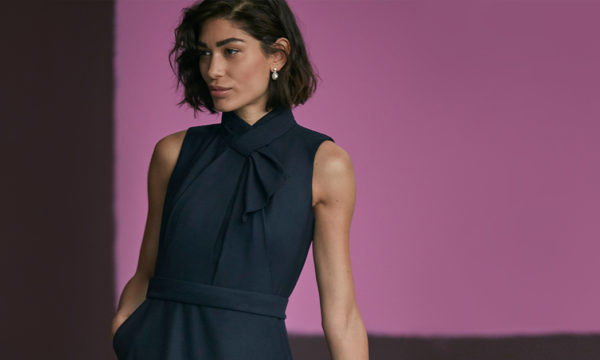
Do I Have to Wear a Suit to a Job Interview?
Job interview outfits should make you feel elegant, powerful, and chic—and you should be able to wear them anywhere.
In recent years, however, the rules around interview clothing have become increasingly less clear cut. Business formal declined with the rise of the millennial workforce, replaced by “dress for your day” policies, which encourage a more individualistic approach to personal style at work. At the same time, some companies, especially corporate brands and some legacy industries, including finance and legal services, still require employees to conform to more traditional standards.
All of which is to say: To wear a suit or not has become a highly subjective question. We polled a few experts to help you make the right decision for your next interview.
Want more M Dash?
Sign up for our weekly newsletter.
Thank you!
Start By Doing a Little Digging

Shop This Look
It’s 2020, and chances are, the organization you’re interviewing with has a website that can tip you off to wardrobe expectations. “A lot of companies have pictures of employees on their career page that will give you a glimpse into the culture,” says Emily Hollander, a recruitment manager at Squarespace who previously worked in talent acquisition for the fashion industry. “If no one there is wearing a blazer or suit, then no one at the office dresses like that.” No suits on site? Then you are most likely safe to skip wearing one at the interview, too. Instead, aim for a polished ensemble that aligns to the imagery on the company’s website or even its Instagram. One route might be to pair something like the Aditi dress with the Merrit jardigan and a pair of low pumps. If you’re still not sure what to wear, don’t hesitate to ask the recruiter or human resources representative, says Hollander.
We Suit Up to Blend In (But You Don’t Have To)

In some sectors of the job market, professional dress still requires a more formal everyday look. Claire Mason is a hiring manager at a plaintiff trial firm in Santa Monica, California, and evaluates “good judgement” in potential employees’ clothing choices. It’s not that personal flair is a bad thing, she explains, “but we need people who are able to follow rules, assimilate into a team, and work as part of a cohesive unit. Someone who displays too much desire to stand out from the get-go gives me pause as a team builder.”
That doesn’t mean you have to be stuffy or unstylish with silhouettes—well-tailored trousers and knitwear in a consistent palette might work just as well. Consider investing in suiting you can mix and match, like the Harlem skirt and the Woolf jardigan in ruby red, which can be swapped in with a range of other colors and styles. Think of dress code expectations as part of the job description, an aspect that you definitely want to prove you can fulfill during the interview process.
Accessorize, But Keep it Subtle

You already know that norms around interview attire differ depending on the industry and even individual offices. What you wear to project professional competence at a major architecture agency is more formal than what you might wear to meet a startup founder or the editor-in-chief at a high-end fashion magazine. The great thing about a chic, well-tailored suit is that you can change the look depending on how you style it. A simple underpinning and a pair of too-cool Koio sneakers can inject personality into otherwise standard suiting. At the same time, remember that the impression you want to leave behind centers on your professional skills, not your sartorial ones, cautions Hollander. Focus on nice fabrics and good fit, and you’ll be on the right track.
Don’t Be Afraid to Switch It Up

One benefit to investing in quality suiting is that you can always break it up to create a variety of other interview-appropriate outfits. Try a pair of navy pants paired with the Eudora top one day, and the Eudora top with the Mejia in plaid (a combo that reads as a jumpsuit) the next. Think of suiting elements like elegant, flexible staples to mix and match with other pieces.
The era of the interview costume is, thankfully, behind us. Now, instead of an interview staple that hangs out in the closet unless we’re looking for a job, today’s suit hunt should be for something that makes you feel elegant, powerful, and chic. In other words, it’s something you should actually want to wear, and there’s no reason to settle for anything less.








